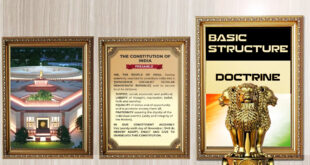The bar of double jeopardy does not arise if an accused was discharged of a criminal offence, even before the commencement of trial, on the basis of an invalid sanction for prosecution, the Supreme Court has held. Article 20 (2) of the Constitution mandates that a person cannot be prosecuted or punished twice for the same offence. A Bench of Justices R. Banumathi and Indira Banerjee held in an October 30 judgment that if an “accused has not been tried at all and convicted or acquitted, the principles of double jeopardy cannot be invoked at all.” If an earlier order of sanction was found to be invalid, there is no bar for the competent authority to issue a proper order of sanction for prosecution, Justice Banumathi, who wrote the verdict for the Bench in a case under the Prevention of Corruption Act, observed. “The courts are not to quash or stay the proceedings under the Act merely on the ground of an error, omission or irregularity in the sanction granted by the authority unless it is satisfied that such error, omission or irregularity has resulted in failure of justice,” the Supreme Court observed. The judgment is based on an appeal filed by the State of Mizoram against an order passed by the Gauhati High Court in August 2015, upholding a Special Court decision to decline to entertain a second chargesheet filed in a corruption case against the accused, Dr. C. Sangnghina, on the ground of double jeopardy.
Check Also
Allocation of Election Symbol
Concept The Election Symbols (Reservation and Allotment) Order, 1968 is a significant legal document in …
 Chinmaya IAS Academy – Current Affairs Chinmaya IAS Academy – Current Affairs
Chinmaya IAS Academy – Current Affairs Chinmaya IAS Academy – Current Affairs



